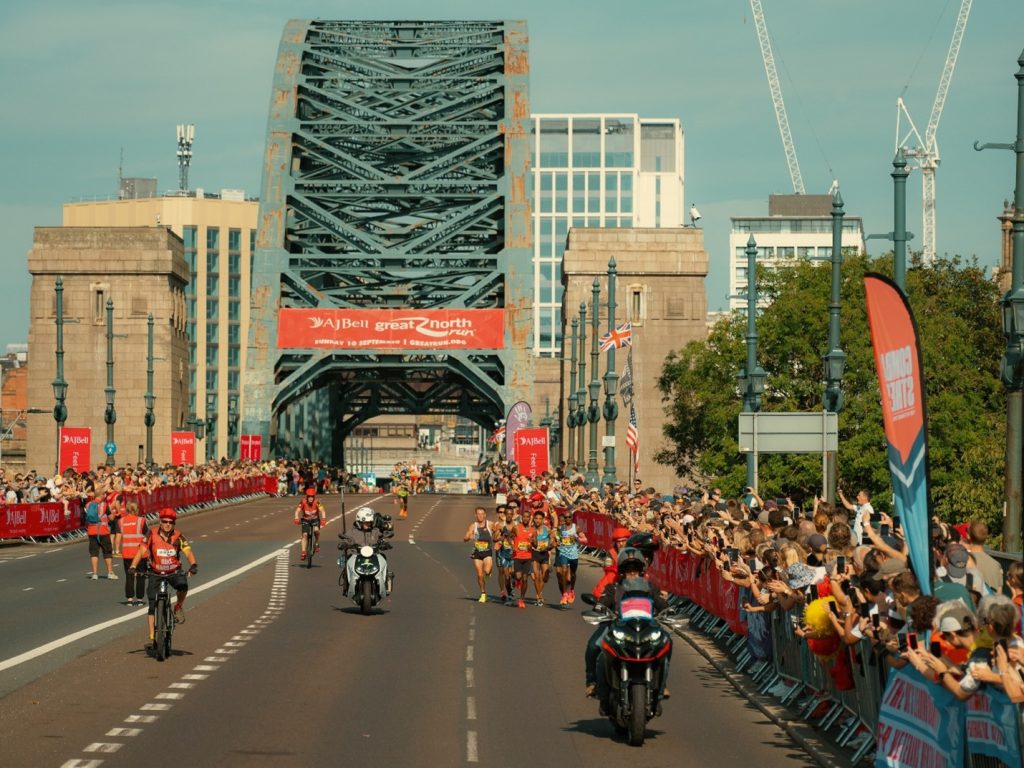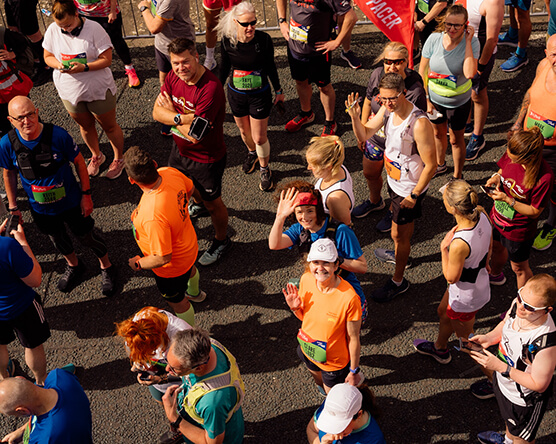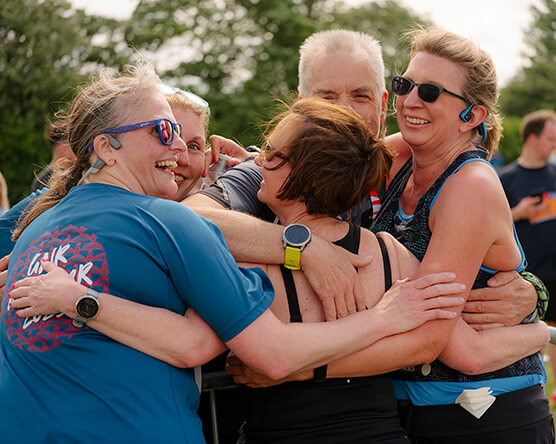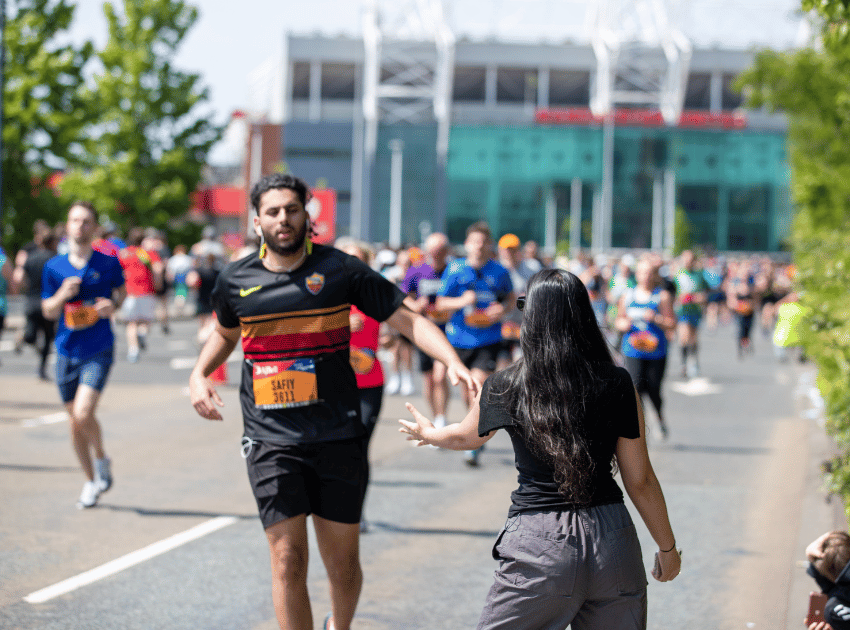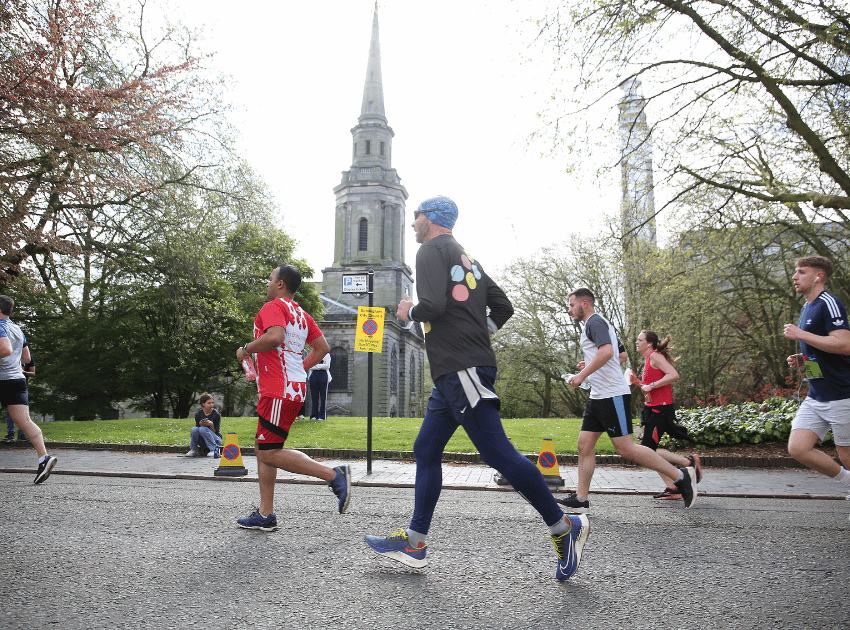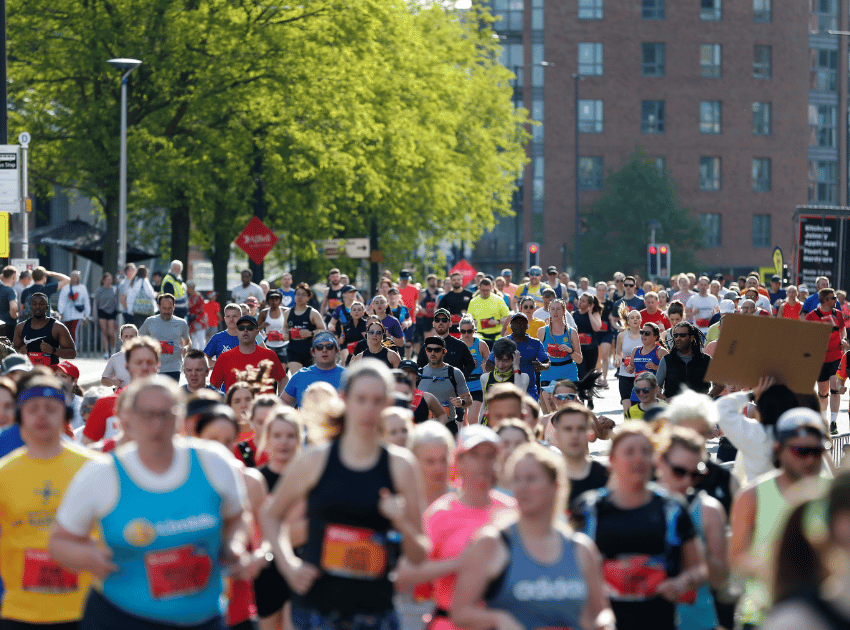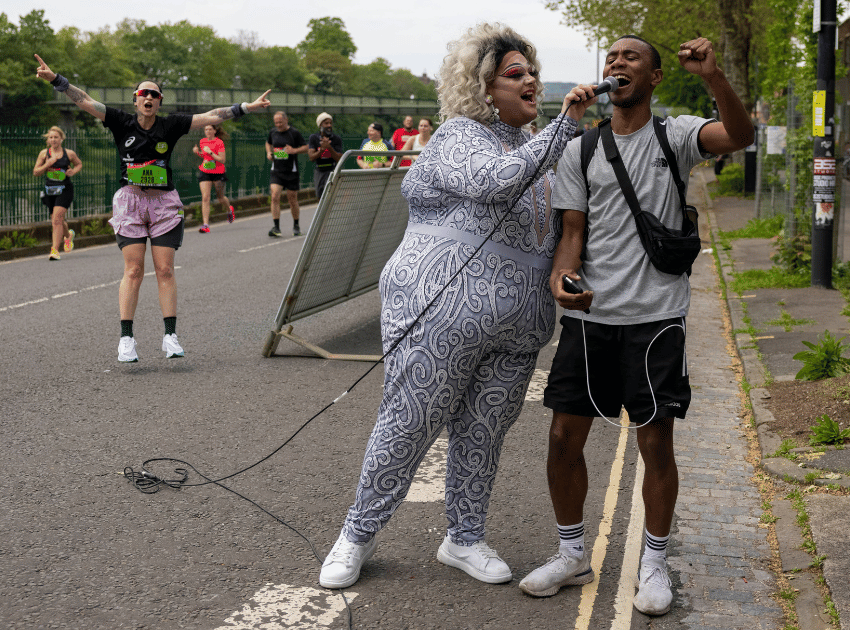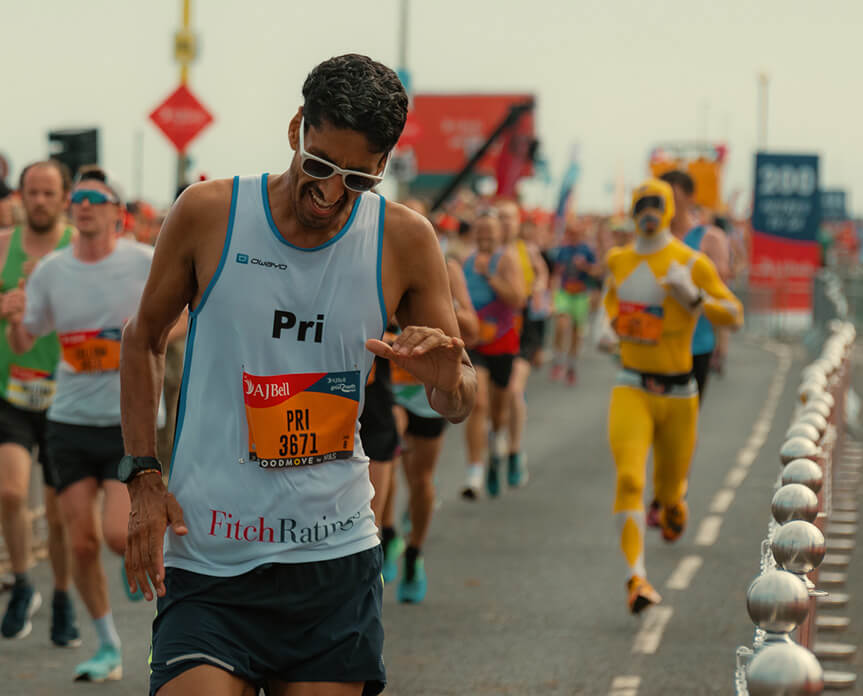The marathon is often referred to as the ‘classic distance’. But do you know everything there is to know about the 26.2mile event and how it has developed over the years? Here’s 10 marathon facts you might not have known!
PHEIDIPPIDES WAS THE ORIGINAL MARATHON MAN
There wouldn’t be a marathon if it wasn’t for Pheidippides. He was the original marathon runner, blazing a trail more than 2,500 years ago.
Pheidippides was an Athenian herald, sent to Sparta to request help when the Persians landed at Marathon in Greece. Legend has it that he ran 150 miles in two days, and then ran 25 miles from the battlefield, near Marathon, to Athens, to announced Greece’s victory in the Battle of Marathon with the message ‘we have won’.
Sadly, there’s no happy ending to this – he collapsed and died after delivering his victorious message. But what a legacy!
THE FARCE IN ST LOUIS
This was the Olympic games in 1904. The pinnacle of track and field, the biggest show in the world. Yet the marathon in St Louis descended into farce. For a start, its winner, Fred Lorz, was disqualified because he was given a lift by his manager for long spells of the race, even taking the time to wave and greet spectators as he passed, before hopping out and finishing in front of a jubilant crowd.
Lorz was disqualified, and the win was credited to Thomas Hicks. Hicks was an American, who had brought two men along with him as support. Seven miles from the end of the race, his supporters fed him strychnine – a rat poison – and brandy to be used as a stimulant.
Meanwhile, a runner collapsed after his stomach lining was torn apart by the dusty air. Another was chased off the track by a pack of wild dogs. One had to take a lie down after eating rotten apples from an orchard on the route.
DORANDO PIETRI, THE NATION’S WINNER
Dorando Pietri ‘won’ the Olympic marathon, held in London, in 1908. We say he won – he had to be helped over the line as he collapsed a number of times before finishing. As a result he was disqualified, but such was the public reaction to his performance, Queen Alexandra presented Pietri with a consolation trophy to reward him for his efforts.
CHARLIE SPEDDING, LAST OF THE BRITISH MEDAL WINNERS
The 1984 London Marathon winner, from Bishop Auckland, went on to take the bronze medal in the marathon in the Los Angeles Olympic Games – the last British marathon runner to medal. He is the third fastest British marathon runner.
RON HILL, RUNNING EVERY DAY
Ron Hill reigned supreme during a time when the British were the kings of the marathon. He was the first British runner to win the Boston Marathon in 1970, took Commonwealth gold in the same year in Edinburgh, and made appearances in the Olympics in 1964, 1968 and 1972. Until 2017, the Accrington-born 77-year old had not missed a day of running since December 1964, even taking the time to go running for at least one mile when he broke his sternum after a car crash in 1993. Beat that!
LONDON CHANGES MARATHONS FOREVER
In the old days, the marathon distance was an entirely arbitrary number. The 1904 distance in St Louis was 24.85 miles, as a tribute to Pheidippides’ efforts 2400 years earlier. By the time the Olympic games arrived in London four years later, it was somewhere near 26, starting at Windsor Castle and finishing at the Olympic Stadium in Shepherd’s Bush. After a bit of head scratching, organisers decided it would be a better idea if the runners completed a lap of the track before striding over the line right in front of the Royal Box, so 385 yards was added to the journey. This was codified and ended up being the permanent distance from 1921 onwards.
KATHRINE SWITZER, THE TRAILBLAZER
In 1967, a K. Switzer appeared on the starting list for the Boston Marathon. Allured by authors such as F. Scott Fitzgerald and JRR Tolkien, Kathrine Switzer had no plans to fool organisers, who had long banned women from taking part. But fool them she did, and no eyebrows were raised when Switzer entered the race. When marshalls realised the subterfuge, they forcibly tried to remove her from the road. Switzer was accompanied by then-boyfriend Tom Miller, who swatted away the official – Jock Semple – and allowed Switzer to carry on running. In 1974, she won the Boston Marathon two years after women were finally allowed to take part, and she was instrumental in lobbying the IOC to allow women to compete in the marathon at the Olympics in 1984.
MIDLANDS’ PLACE IN MARATHON HISTORY
It’s a little-known fact that as far as marathons go in England, the Midlands is the birthplace. Jack Price was the winner of the first-ever marathon in England. Used as a trial for the 1908 Olympics in London, the 25.5mile race started in Coventry and finished in West Bromwich. Jack won in two hours, thirty-seven minutes and 13 seconds and was chosen for the 12-man United Kingdom team for the Olympic marathon, but despite leading for half the distance, he had to pull out in the 15th mile. He has now been commemorated in his home town of Halesowen.
THE BAREFOOT BIKILA INSPIRES A CONTINENT
Abebe Bikila is credited with inspiring a whole continent to distance-running glory. The Ethiopian arrived in the Rome Olympics in 1960 as a late addition to the team, ran the marathon bare-footed, and won. Bikila is Haile Gebrselassie’s favourite runner of all-time, and is generally accepted as being the trailblazer for Africa’s sustained success at middle and long-distances for the last 50 years.
PAULA RADCLIFFE DOMINATING A DECADE
A year after stepping up to the distance, Paula Radcliffe smashed the world record in London in 2003, with her 2 hours 15 minutes 25 seconds. Yet to be surpassed in a women’s only field, Radcliffe went on to enjoy another 12 years of marathon supremacy before her final appearance in the 2015 London Marathon.


